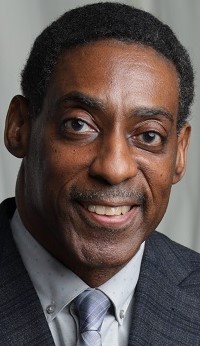
Pro-life should really mean pro life

Belhaven is a small rural town located along the coast of eastern North Carolina. This majority-African American community has a median income which is three times less than the state median. Many of its approximately 1,700 residents lack health insurance.
From 2005 to 2017, Adam O’Neal served as the town’s Republican elected mayor in this largely Democratic community. And like so many rural communities around the nation, in 2015 Belhaven experienced the closure of its one and only hospital which served over 20,000 people throughout a two county area. The 65-year old hospital closed in part to the decision of the governor and state legislature to reject the expansion of Medicaid under Obamacare.
Last year, rural hospital closures hit a record high with 20 closed in 2020. Throughout the United States, 136 rural hospitals have closed since 2010, according to the Cecil G. Sheps Center for Health Services Research.
Over the past decade, the state of Texas leads the nation with 21 rural hospital closures. The COVID-19 pandemic is now producing even more financial pressure and further threatening the ability of rural hospitals to maintain healthcare services. Even with the backdrop of struggling hospitals, lawmakers such as Texas governor Greg Abbott previously failed to give hospital relief by following recommendations by federal health officials.
Those recommendations would have reduced the surge of new patient hospitalizations. Most of those individuals now being hospitalized are unvaccinated. Many hospitals are exceeding their capacity and stretching their staff beyond limits.
Ironically, many state governors and legislators who reject mandating vaccines and the wearing of masks actually call themselves “pro-life.” For these lawmakers and their ardent supporters, “pro-life” is conditional and tied to only one issue, abortion.
When you look up the definition of “pro-life” it refers to the right to life and advocating the legal protection of human embryos and fetuses. This limited version of “pro-life” is driven more by ideology and culture. Which explains why many people vote solely on the issue of abortion. Pro-life should really mean the protection of all life by having the unconditional quality of being humane to all people in all situations.
Meaning when you hear that 634,250 individuals in the U.S. died of COVID-19, you encourage people to get vaccinated as a means of protecting life and limiting further deaths. If you were truly pro-life then one should promote mask wearing in public indoor spaces and urge universal masking in schools.
If you were truly pro-life then you would fully understand that Black lives matter. And lastly, if you were truly pro-life you would follow the example of the former mayor Adam O’Neal.
Six days after the closure of the Belhaven hospital, a local resident unable to make it to the nearest hospital by helicopter, died of a heart attack. As a result, the Republican mayor made an unpopular pro-life decision which was beyond the issue of abortion.
He took a 15-day, 273 mile walk to Washington DC to draw attention to the failure of Republican leaders in his state to accept the Medicaid funding the hospital needed in order to remain operational.
“If the governor and the legislature don’t want to accept Medicaid expansion, they need to come up with another program to assure that rural hospitals don’t close,” O’Neal said. Otherwise, he continued, “they’re allowing people to die to prove a point. That is wrong, and I’m not going to be a party to that.”
Pro-life is more than ideology. It means at times you put aside race, economic class and blind party loyalty in order to unconditionally protect and preserve all lives.
David W. Marshall is founder of the faith based organization, TRB: The Reconciled Body, and author of the book “God Bless Our Divided America”. He can be reached at www.davidwmarshallauthor.com







